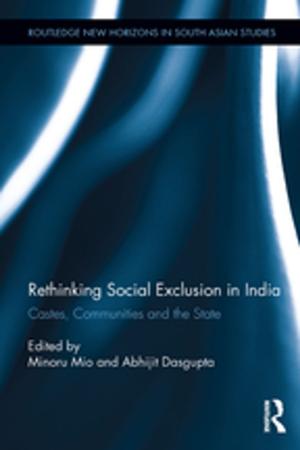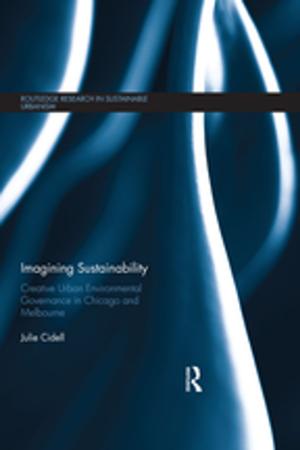Releasing the Commons
Rethinking the futures of the commons
Nonfiction, Science & Nature, Science, Earth Sciences, Geography, Social & Cultural Studies, Social Science, Human Geography| Author: | ISBN: | 9781317375364 | |
| Publisher: | Taylor and Francis | Publication: | April 28, 2016 |
| Imprint: | Routledge | Language: | English |
| Author: | |
| ISBN: | 9781317375364 |
| Publisher: | Taylor and Francis |
| Publication: | April 28, 2016 |
| Imprint: | Routledge |
| Language: | English |
This book moves beyond seeing the commons in the past tense, an entity passed over from the public into the private, to reimagine the commons as a process, a contest of force, a reconstitution, and a site of convening practices. It highlights new spaces of gathering opening up, such as the digital commons, and new practices of being in common, such as community economies and solidarity networks. The commons is seen as a contested domain of the collective and as a changing way of being in common, with the balance poised in the tensile play between political economy and social innovation. The book focuses on the possibility of recovering a future in which more can be held by the many, focusing on three concepts: nation and nature as a commons, publics and rights, and bodies, concerning the management of lives and livelihoods. Across these three passage points, the book finds evidence of a commons under attack but also defended in fragile though promising ways.
With contributions from leading scholars, this thought provoking book will be of great interest to students and scholars in geography, environmental studies, politics, anthropology, and cultural studies.
This book moves beyond seeing the commons in the past tense, an entity passed over from the public into the private, to reimagine the commons as a process, a contest of force, a reconstitution, and a site of convening practices. It highlights new spaces of gathering opening up, such as the digital commons, and new practices of being in common, such as community economies and solidarity networks. The commons is seen as a contested domain of the collective and as a changing way of being in common, with the balance poised in the tensile play between political economy and social innovation. The book focuses on the possibility of recovering a future in which more can be held by the many, focusing on three concepts: nation and nature as a commons, publics and rights, and bodies, concerning the management of lives and livelihoods. Across these three passage points, the book finds evidence of a commons under attack but also defended in fragile though promising ways.
With contributions from leading scholars, this thought provoking book will be of great interest to students and scholars in geography, environmental studies, politics, anthropology, and cultural studies.















